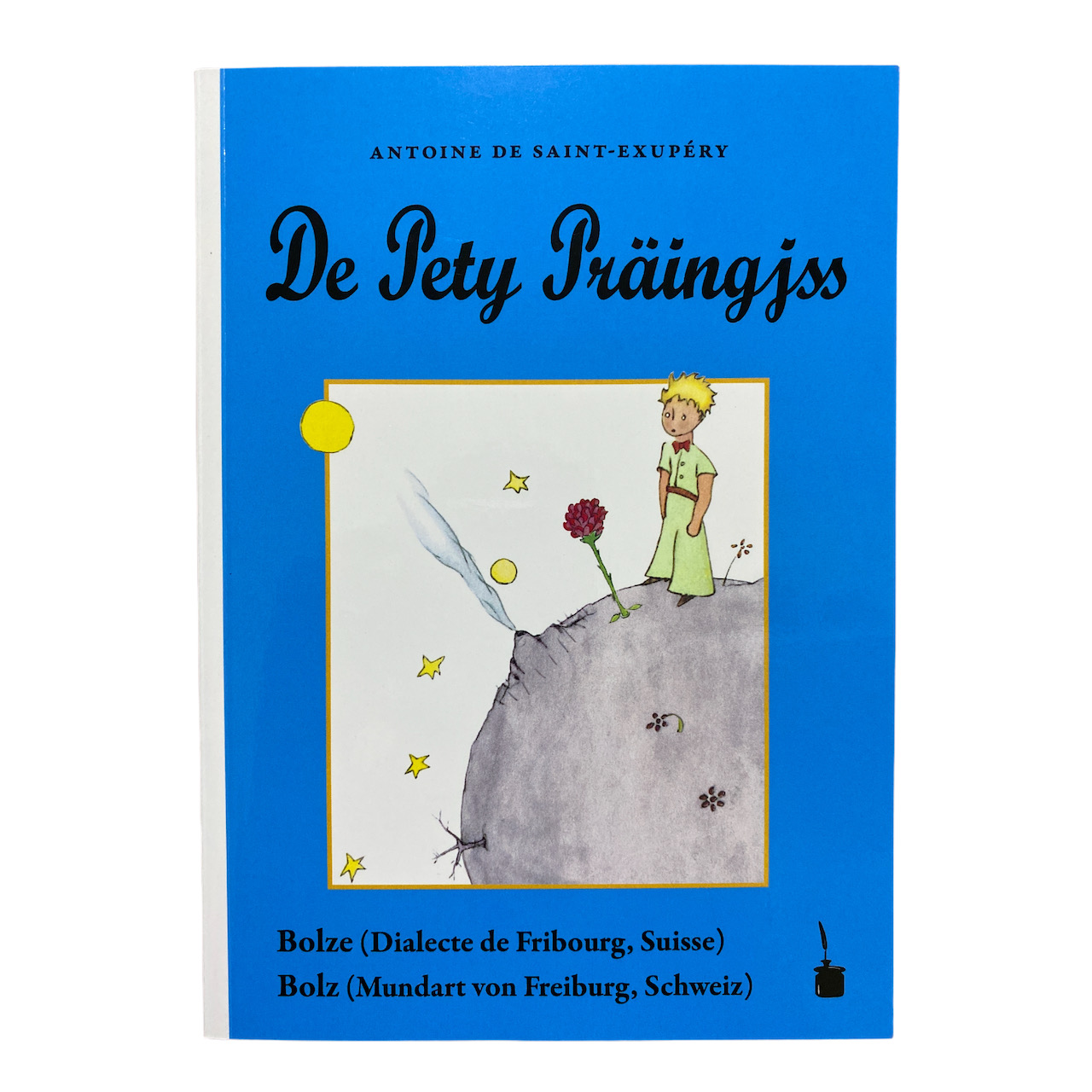
De Pety Präingjss — in Bolze sociolect.
Bolze refers to a sociolect or dialect spoken by a specific group in the city of Fribourg (Freiburg), Switzerland. It is not a distinct language per se but rather a unique linguistic phenomenon resulting from the bilingual nature of Fribourg, where both French and Swiss German are spoken. Bolze is primarily associated with the working-class population of the city’s Lower Town (Basse-Ville), and it showcases a blend of Swiss German and French linguistic elements, reflecting the city’s historical and cultural bilingualism.
Bolze features a mix of Swiss German dialect elements and French vocabulary and syntax. This mixing results in a unique form of speech that can include Swiss German grammar structures with French words, Swiss German pronunciation of French words, and vice versa. Speaking Bolze often signifies a local identity and belonging to the Fribourg community, particularly in the Lower Town. It is a marker of social and cultural belonging, distinguishing the speakers from those who only speak Standard French or Swiss German.
Bolze is primarily a spoken sociolect, used in informal settings among family, friends, and within the community. It is less common in formal situations or in writing, where Standard French or Swiss German would typically be used. The perception of Bolze has evolved over time. While it may have been stigmatised in the past as being informal or associated with a lower socio-economic status, there is a growing appreciation for its role in representing the unique cultural identity of Fribourg and its bilingual heritage. There is interest in preserving and documenting Bolze as an essential aspect of Fribourg’s cultural heritage.


